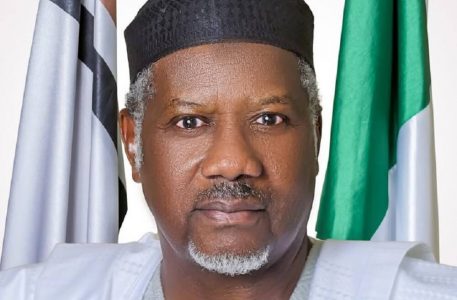The president of Manufacturers Association of Nigeria (M.A.N), Engr. Mansur Ahmed says Nigeria’s manufacturing sector needs diversification to be able to produce the range of products and the volume required for continual consumption and export.
Engr. Ahmed, who was speaking at a forum organised for Business and Financial Journalist in Nigeria recently, said manufacturing in Nigeria is dominated by a single subsector.
“We are neither producing the right things nor are we producing enough of the right things and this goes back to the issue of restructuring the economy. Diversification does not just mean the diversification of the real sector in terms of agriculture, even the manufacturing sector needs to be diversified.
“The manufacturing sector in Nigeria today is dominated by the food and beverages subsector and the problems are two; first of all we need to diversify so that we can produce the range of goods that are required for consumption or for use on a continual basis.
“This will bring back encouraging new investments or expansion of the current investor’s base both to produce new materials and increase the volume of production.
The M.A.N president decried Nigeria’s low export despite the latent potential to export more.
In his words, “We are currently not producing enough and that is why we are actually not exporting despite the fact that we are in a position to export. For instance, a factory in Nigeria is able to produce only eight tons of a product a day but export potential of the product alone is more than 20 tons. So there’s also need to deepen.
“The fact is that our manufacturing sector is not as complex as it ought to be. Complex in terms of the range of goods and services it can produce, so we encourage them. While we think about diversification, we need also to think about diversifying laterally and vertically, this is absolutely necessary.
“As we are going into this African Continental Free Trade Area (AfCFTA), this is the opportunity for Nigeria because when you go around Africa as a whole. Apart from countries like South Africa, Egypt and Morocco there is very little manufacturing capacity in the rest of Africa, so we are already at a great advantage because we have a fairly large manufacturing capacity but we need to create the capacity to produce more and improve on the range of quality.
Engr. Ahmed blamed the low productivity in the nation’s economy on Nigeria’s acceptance of external influences by implementing the policies of the International Monetary Fund (IMF) and the World Bank.
“What has brought us to this position was that somehow the Breton Wood institutions have actually helped to keep our economy down because they made two recommendations which our leaders have accepted; one that you can only produce for your economy and market if you can produce it competitively with other producers.
“Now how can you be competitive against someone who has been producing the same thing for 100years? How can you be competitive against someone who is producing million units per hour while you are only producing 10 units a day?
“So clearly competitiveness comes from practice and the same thing goes for innovation. When you are doing the same thing continually for a long time then the idea of improving on it and doing something else out of it comes through.









Comment here